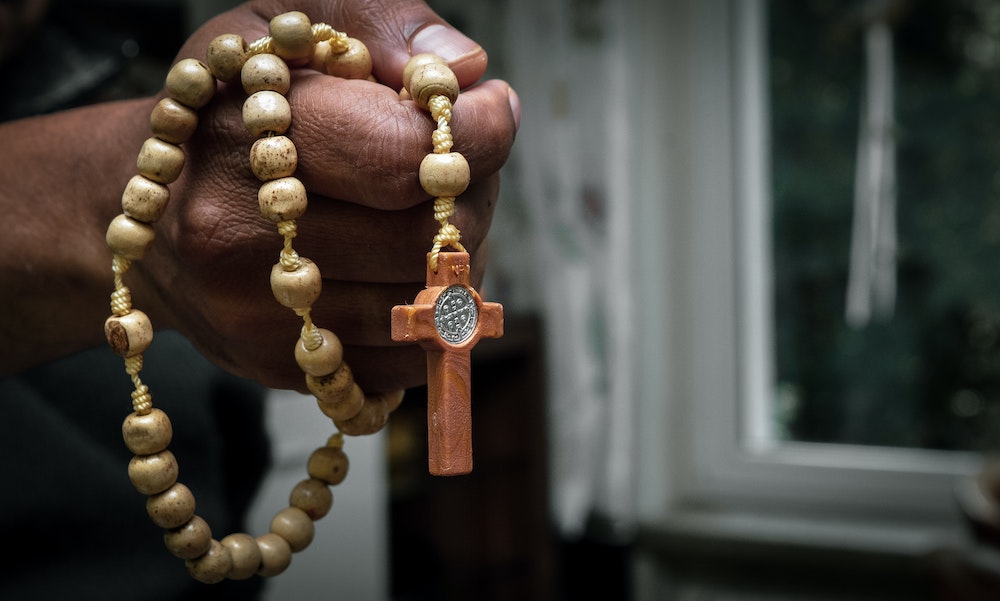The Hail Mary is one of the most familiar of Catholic prayers. But as with so many familiar prayers, it often slips through our lips without much conscious reflection. A few years ago as I was seeking methods to better focus my thoughts during the rosary, it occurred to me that ten times for every mystery I was affirming that Jesus and his mother were blessed. I started reflecting on how they were blessed specifically in that moment of Christ’s life.
But it did not take long before I realized that discerning “blessedness” in the Sorrowful Mysteries was going to be a little more uncomfortable. How is Jesus blessed when he’s on the cross? How is Mary blessed as she watches him die in agony? And, on a more personal note, when I ask God to bless me and those whom I love, is the cross a possibility that I’m willing to accept? Even the Joyful Mysteries are not unambiguously happy. Of course we all know the familiar story of “no room in the inn” at the Nativity of our Lord. But the last two Joyful Mysteries also present challenges. As a matter of fact, the last two Joyful Mysteries are also the first two of the Seven Sorrows of Mary.
What does it mean to say that moments of pain and suffering can also be moments when we are enjoying God’s blessing? For both Christ and for us it is not the pain and suffering itself which is a blessing for us. In itself suffering is always evil. Yet it can have salutary effects. In Christ’s crucifixion, he wins resurrection, for himself and for us (ST III, q. 49). He is accomplishing in loving obedience the plan for our salvation. In my own moments of pain I have the blessing of an opportunity to grow in conformity to Christ who suffered in identification with fallen humanity to the point that we can be called members of his body. Thus like Saint Paul we can say, “it is no longer I who live, but Christ who lives in me; and the life I now live in the flesh I live by faith in the Son of God, who loved me and gave himself for me” (Gal 2:20).
We could extend the logic farther and say that in a certain sense it is no longer I who suffer, but Christ who suffers in and with me. As Caryll Houselander points out, “If Christ is formed of our lives, it means that he will suffer in us. Or, more truly, we will suffer in him…. We need to say to ourselves a thousand times a day: ‘Christ wants to do this; Christ wants to suffer this.’ … [W]hen we resent our circumstances or try to spare ourselves what we should undergo, we are being like Peter when he tried to dissuade our Lord from the Passion” (76–77).
Ultimately we can be blessed in our suffering because our suffering can be a participation in the suffering of Christ. This share in his suffering brings us closer to eternal union with him, but also provides an opportunity for union with him now precisely in the weakness and pain that is ours and in which he has shared. It is this union, not the pain and the suffering, which is blessed; and it is the love shared with us in that union which we contemplate in the rosary, and which we desire to grow in by Mary’s intercession, both now and at the hour of our death.
✠
Photo by Anuja Mary Tilj on Unsplash







